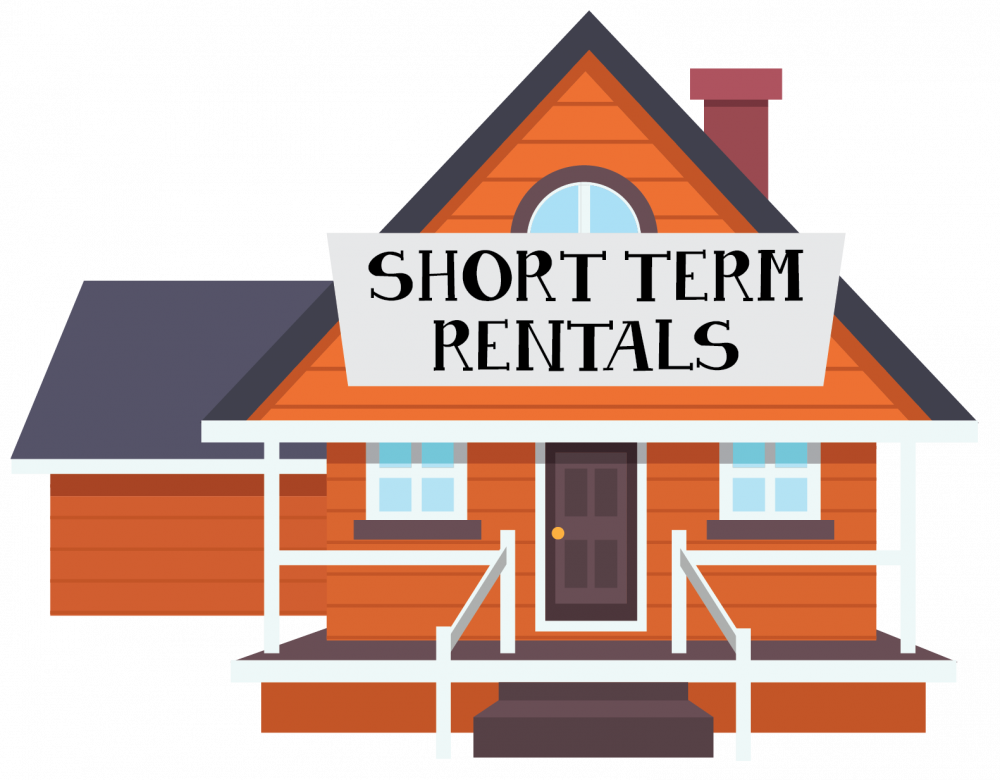What's all the fuss about Short Term Rentals?
Posted on 10/26/2023 by David M. Dion
So, what’s all the fuss about STR’s? Well, there’s a lot to fuss about!

An STR is the acronym for a Short-Term Rental. STR’s have exploded in popularity in recent years and the trend is not likely to abate anytime soon. The benefits can be great for homeowners looking for a bit of extra income, or in some cases a lot of extra income! But the consequences can sometimes be anywhere from challenging to devastating in small communities.
It doesn’t take a PHD in economics to come to the conclusion that the use of condominiums or single-family dwellings for short term rentals has a significant, detrimental effect on both availability of workforce housing and also occupancy rates at hospitality properties like Inns, Lodges and Bed & Breakfasts. Additionally, those commercial properties are at a competitive disadvantage because of the many local, state and regulatory requirements needed to operate.
Regulations. For example, hospitality properties need to adhere to a range of regulations including income and rooms & meals tax reporting, fire and safety codes, and for pre-1978 housing, federal and state lead-based paint regulations. In theory the short-term rental owners need to follow many of those regulations as well. However, in practice many STR owners either are not aware of or simply ignore the rules.
Housing Registry. For this reason many states including Vermont want to create a Housing Registry in order to better enforce the rules. Naturally, there is pushback from property owners who prefer to be left alone. However, a few advocacy groups have recently joined the conversation in the hope of creating a collaborative atmosphere in seeking fair and reasonable regulations.
For example, The Vermont Short Term Rental Alliance is an association for vacation rental managers and short-term rental hosts operating in Vermont. Although they advocate for rental property owners, they also work collaboratively with all property owner and regulatory stakeholders involved. Their website offers some very useful information including Best Practices in Regulating Short-Term Rentals and a Vermont Cities & Towns Guide to Regulating Short-Term Rentals.
Insurance and liability. When you purchased your home, you likely secured a homeowners insurance policy. However, did you know you might not be successful in making an insurance claim if that policy does not cover renting your home to others? For this reason, be certain to consult with your insurance provider before your first tenant arrives.
Mortgage Requirements If you have a mortgage on the home there is a good chance that somewhere buried in the multiple pages of conditions you agreed to is a clause that states you agree to only occupy the home as a primary residence, or in some cases a vacation home. Do you really want to risk the mortgage company demanding your $300,000 mortgage balance due because you wanted to make a few extra thousand dollars over the Christmas holidays?
Rental Registry Although legislation has been introduced Vermont does not yet have a statewide Rental Registry. However, some cities and towns including Burlington do. See Burlington Rental Registry. These registries are primarily used to enforce minimum housing standards. But they also fund tenant and landlord advocacy services. Rental property owners in Burlington are required to renew their rental registration annually but many units are not even on the registry.
Vermont Fire Marshall Title 20 Chapter 173 of the Vermont Statutes defines a public building as (among other things) “a building in which people rent accommodations, whether overnight or for a longer term. Both single family residential dwellings and public buildings are subject to the 2015 Vermont Fire & Building Safety Code. The regulatory requirements differ depending on the use, and some of those requirements can be very costly to comply. Unfortunately, most property owners are either not aware of the regulations, or they choose to ignore the regulations.
If you are subject to the regulations and a Vermont Fire Marshal wants to inspect your property, you might consider hiring a private consulting engineer to assess the property first. Otherwise, once the Fire Marshal enters your property you will then be subject to whatever violations are noted. And sometimes those violations can be extra-ordinarily costly and cumbersome to cure. And those violations (even if corrected) likely need to be disclosed when you sell your property.
Federal and Vermont Lead-Based Paint Regulations. Many property owners who rent are not aware that pre-1978 housing is subject to Federal and Vermont Lead-Based Paint Regulations. Additionally, many property owners are aware of but simply choose to ignore the regulations. This creates significant risk to all who choose to occupy short-term rentals and significant liability to property owners who ignore the regulations.
There is a moral to this story and that is nothing is ever as simple as it seems. What might seem like easy money can quickly become a hugely unpleasant and costly affair. As a result, if you want to get involved in short-term rentals, please do your homework and ensure you are complying with all the rules and regulations. You might also consider letting your neighbors know what you’re up to. Because it’s always a good idea to be nice to your neighbors!

